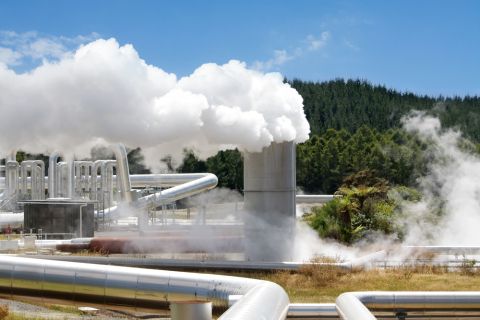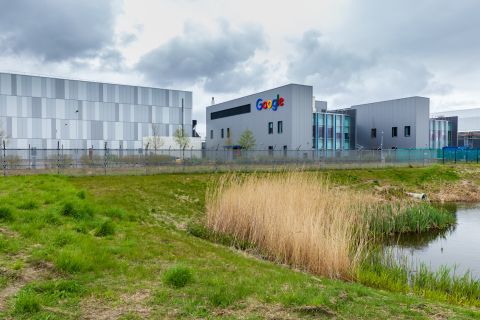Chesapeake Energy Corp. (NYSE: CHK) on Feb. 23 posted a smaller fourth-quarter loss than a year earlier when it took huge charges to write down the value of some oil and gas assets.
Results were hurt by lower volumes and prices and by losses on hedging during the quarter. It expects to reverse volume declines, adjusted for divestitures, in the second half of the year.
At noon, shares in Chesapeake were down more than 7% at $5.49.
In a note, Barclays analysts wrote the U.S. natural gas producer's fourth quarter results were largely in line with expectations, but described Chesapeake's 2017 production forecasts as "a bit more pessimistic" than rivals.
"We will be working to accelerate our stated debt reduction target of $2 billion to $3 billion over the next few years through additional asset sales," CEO Doug Lawler said on a conference call. In 2018, the company expects to be cash-flow neutral, balancing cash received from operations with capex.
Chesapeake said production averaged about 574,500 barrels of oil equivalent per day (boe/d) in the quarter, down 13.1% from a year earlier.
Chesapeake, like its peers, has been selling assets to lower its crippling debt load after a two-year rout in oil prices depleted its cash balances.
The company narrowed its 2017 capital budget last week, but maintained its production target of 532,000 boe/d to 562,000 boe/d.
The company's net loss available to shareholders narrowed to $741 million, or 84 cents per share, in the three months to Dec. 31, from $2.23 billion, or $3.36 per share, a year earlier.
The latest figures included $395 million in unrealized hedging losses on oil and natural gas derivatives and a $428 million loss on the exchange of preferred stock. The year-ago quarter included charges of about $2.83 billion, mainly for asset impairment.
Excluding items, the company earned 7 cents per share, in line with the average analysts' estimate, according to Thomson Reuters I/B/E/S.
Chesapeake's total revenue fell nearly 24% to $2.02 billion in the latest quarter, narrowly missing analysts' average estimate of $2.08 billion.
Recommended Reading
Devon Energy Leads $244MM Funding Round for Fervo Energy
2024-02-29 - The funds will finance Fervo Energy’s next phase of growth as it puts to use oil and gas technology and techniques to scale geothermal energy.
US Geothermal Sector Gears Up for Commercial Liftoff
2024-04-17 - Experts from the U.S. Department of Energy discuss geothermal energy’s potential following the release of the liftoff report.
Energy Transition in Motion (Week of March 1, 2024)
2024-03-01 - Here is a look at some of this week’s renewable energy news, including Chevron’s plans for a solar-to-hydrogen facility in California.
Sinopec Completes Drilling of China’s Deepest Geothermal Well
2024-04-11 - Sinopec said the Fushen-1 Well was drilled to a depth of 5,200 meters.
Google Exec: More Collaboration Needed for Clean Power
2024-04-17 - Tech giant Google has partnered with its peers and several renewable energy companies, including startups, to ramp up the presence of renewables on the grid.





